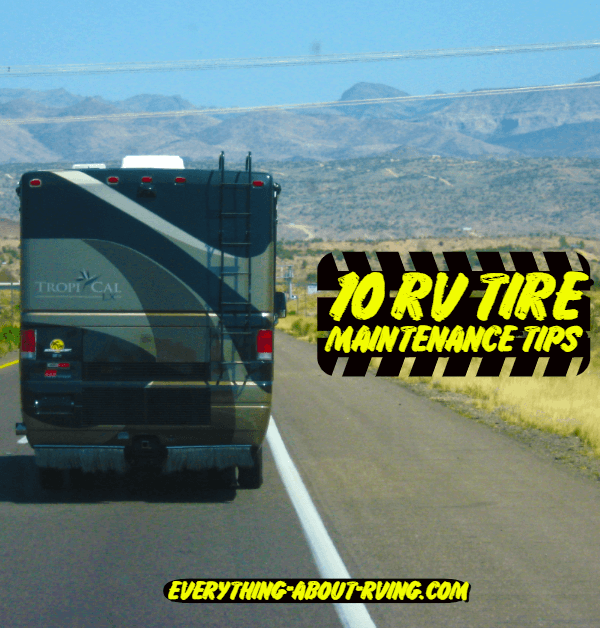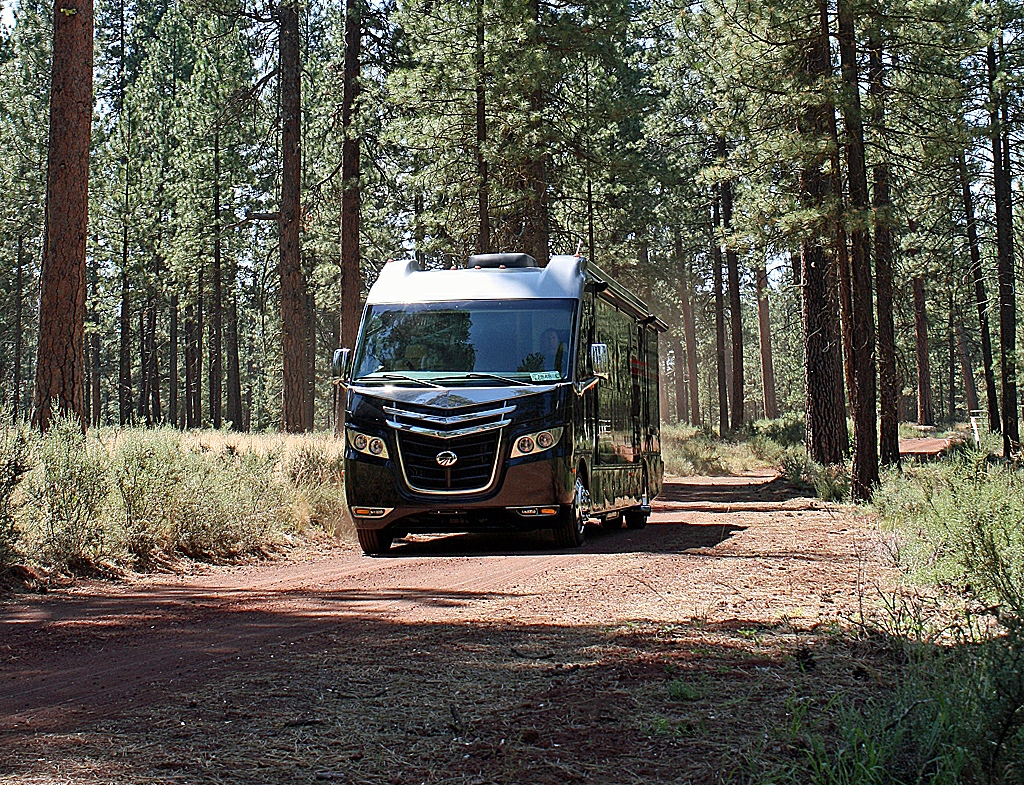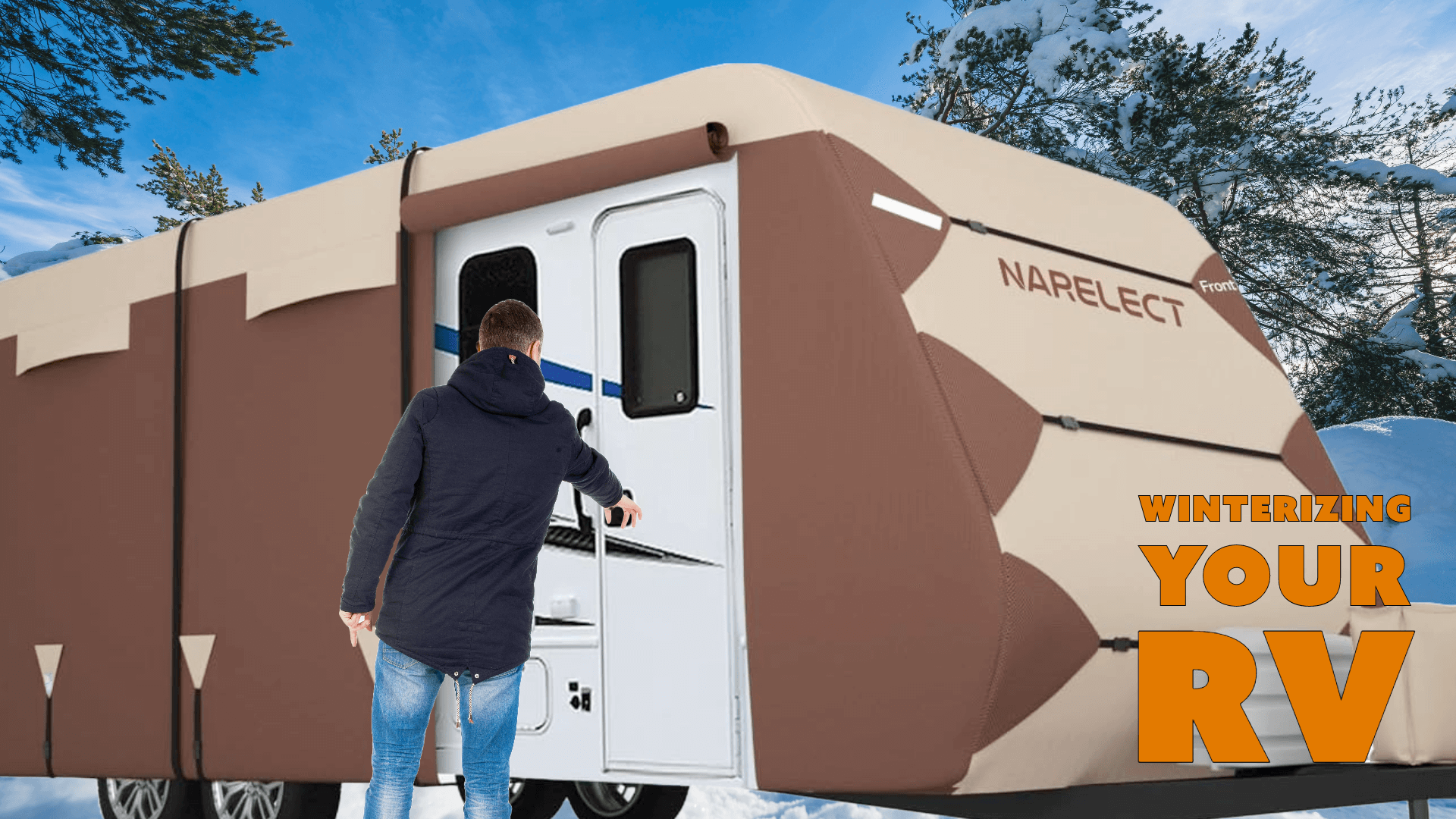10 Important RV Tire Maintenance Tips
These RV tire maintenance tips will help you prevent a catastrophic tire blowout
By Jon Mills
Your tires are one of the simplest, yet arguably the most important part of your vehicle. Regardless of how well your RV is maintained mechanically, if you have a tire failure it can be catastrophic.
It is paramount that you keep them in as good condition as possible for as long as you can, so we’ve put together the following list of tips that will help them last longer and keep you safely on the road
1. Check your tire pressures regularly when travelling. Incorrect inflation can cause sidewall cracking and unusual tread deterioration. Only check your pressures when the tires are cold. Hot air expands and you will get a higher reading than normal.
2. When in storage, keep your tires inflated according to the manufacturer’s recommendations (preferably at a slightly higher pressure than you would use when driving)
3. Avoid using tire dressings that make your tires look shiny (unless recommended by the manufacturer). They can neutralize the protective compounds that are a component of the tire walls and cause them to deteriorate prematurely.
4. Only ever use soap and water to clean your tires, and never use a solvent. Solvents such as alcohol, paint stripper, or kitchen cleaners can react with the rubber causing it to crack. Only clean your tires occasionally though, as overdoing it shorten their lifespan.
5. Avoid storing your tires on frozen ground. The rubber can become more brittle, and crack as a result.
6. During storage, you should position a barrier (like a piece of wood) between the ground and the tire. This is known as blocking and the ‘barrier’ needs to be longer and wider than the tread footprint. Care should be taken to make sure that the load on each tire is distributed evenly or damage can occur to the sidewalls.
7. If you keep your vehicle outside make sure you cover your tires to protect them from the sun. Sustained UV exposure can cause the rubber to age prematurely. Another reason to cover your tires is to protect them from ozone in the air which can cause the rubber to ‘dry rot’.
Save 50% Off of Campsites with Passport America
8. Unload your motorhome before any prolonged inactivity to keep as little amount of weight as possible on the tires.
9. To help prevent the sidewall from cracking, move your RV every couple of months to rotate the tires
10. If your tires get any oil on them (most likely engine oil) either from the road or through accidental spillage, clean them as soon as possible with soap and water. Oil can react with the rubber causing its chemical structure to weaken.
Other things to consider:
When in storage for any prolonged period of time, avoid parking on petroleum-based surfaces like asphalt. As petroleum is a solvent it can react with the tire if left stationary for a long time. In addition, the high heat absorption properties of asphalt can be damaging to tires over time.
Also, adjusting the way you drive can have a huge impact on tires. Quick turns, aggressive starts, rapid stops, and speeding can all cause increased tire wear (all of which heat up the rubber, leading to premature breakdown). Try to avoid obstructions like potholes, logs, curbs, and rocks, as the persistent scraping and impact will wear the rubber down.
Remember to visually inspect your tires, and look for scrapes, bulged areas, and tread wear. The more worn or damaged your tires are, the more care you will need to take when driving.
Lastly, the age of your tires is an extremely important factor to consider before venturing out on your travels, so knowing how old they are is something you really need to know. The older the tires the more vulnerable they’ll be to deterioration and failure, and if they are over 7 years old you really must consider replacing them regardless of their condition.
So to find out their age, follow these simple instructions:
Tires made in the US will have a DOT number on the sidewall. DOT numbers will consist of either 3 or 4 digits. Only much older tires (before the year 2000) use 3 digits, so if you have this then they must be replaced. Newer tires use the 4 digit system. A number which looks like this – 3513, will have been made on the 35th week of the year 2013.
If for any reason you cannot find or read the DOT number, have them inspected at a reputable tire center.
By following these simple tips, you can help keep your RV tires in top condition for as long as possible. Bearing in mind that your tires are the only thing between you and the road, they should be made an absolute priority.
Inspect them regularly, and don’t hesitate to replace them if you have to. It might be expensive, but not doing it could cost you a whole lot more.
About The Author
Jon Mills is an avid RV enthusiast, and the creator of the ‘Route-1’ low clearance avoidance system (the largest low clearance database ever devised for the USA & Canada). Available at LowClearances.com. He is also the producer of the popular ‘RV Pro Safety Guide’, providing professional safety expertise for RV drivers. Currently available FREE for a limited time at RvSafetyFirst.com. So get your copy now.
Do you have any suggestions or comments on this topic? You can add them to this page by using the comments section located below.




